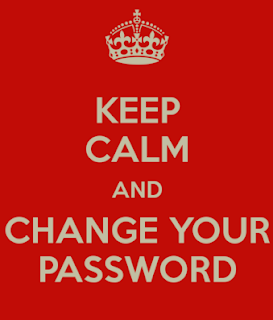Your Email Account Has Been Hacked….Now What?????
1. ACCESS YOUR ACCOUNT
Visit email provider’s website and try to log in. If you can’t,
try the password reset (look for the “forgot password” option). You may need to
answer the security questions or remember numbers from a pass key.
2. CHANGE YOUR PASSWORD
Create a long, complex password (16 character is
recommended), mixing latter cases, numbers, punctuation mark and special
characters. Avoid familiar words or dates. Use a made-up word or a wrong
spelling.
3. CHANCE YOUR PASSWORDS ON OTHER ACCOUNT.
It’s unwise to use the same password for multiple email
account. If you have, change these too.
4. CHECK YOUR SENT ITEMS.
Hackers often use email accounts they’ve broken into to send
spam to the contacts, hoping to harvest personal information. Look for anything
unusual and, if necessary, tell your contacts that your email has been hacked.
5. CHECK YOUR OTHER DEVICE
Make sure you can still access
your email on other devices, such as your tablet or smartphone. If a hacker
signs in into your email, you may need to change your password in the setting
or type in your new password again to continue receiving email on these
devices.
6. ADD A LAYER OF SECURITY
Having an alternative access
method increase security. If you add your mobile number to your account and
need to reset your password, your email provider can text you an access code.
Many banks offer devices which generate a random code (a OTP: One-Time
Password) which you can type into the website to log into your account online.
Most email providers offer one or more of these two-stage authentication
processes but you may need to active them, so check your account setting. It’s
the best way to ensure that hackers can’t access your information again.




